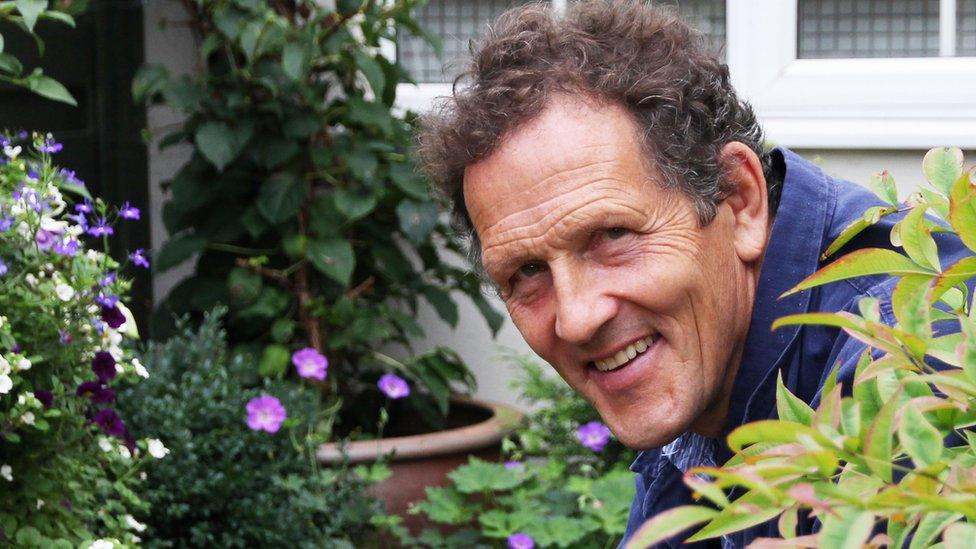Sheffield 'jungle' garden: Simon Olpin's 30-year odyssey
- Published
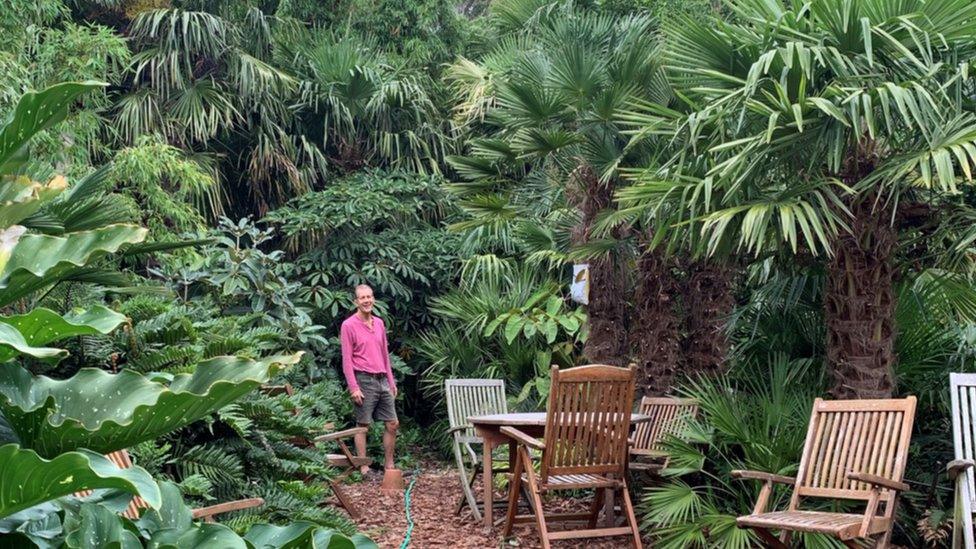
Simon Olpin said after starting with a blank canvas in 1987 his garden now resembles a jungle
A man has spent more than 30 years transforming a suburban garden in northern England into a "jungle".
Simon Olpin and his family moved to the Millhouses area of Sheffield from Cambridge in 1987.
He said the garden was "pretty much a blank canvas" when they moved in, but slowly evolved after much "trial and error" and a lot of work.
Mr Olpin's collection features plants from all over the world, including giant bamboos and Chinese palms.
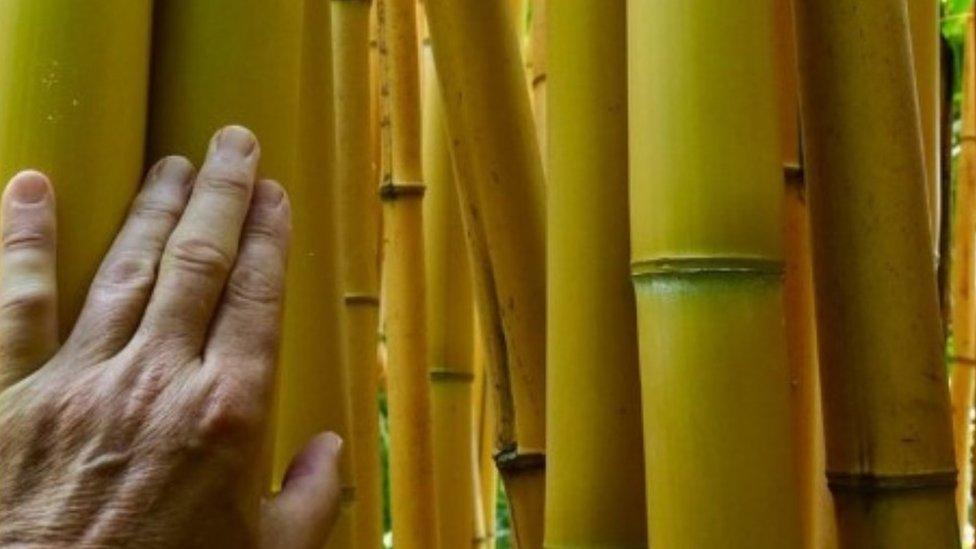
The garden, including a giant Chinese bamboo, previously featured on an episode of Gardeners' World
"It is now really a jungle with really mature plants," he said.
"It's not a pretty garden - full of pretty flowers, and it's not everyone's cup of tea. But it is surprising what you can grow."
Some of the more tender plants have not fared so well over the years, but most "have taken all that the Sheffield winters have thrown at them", he added.
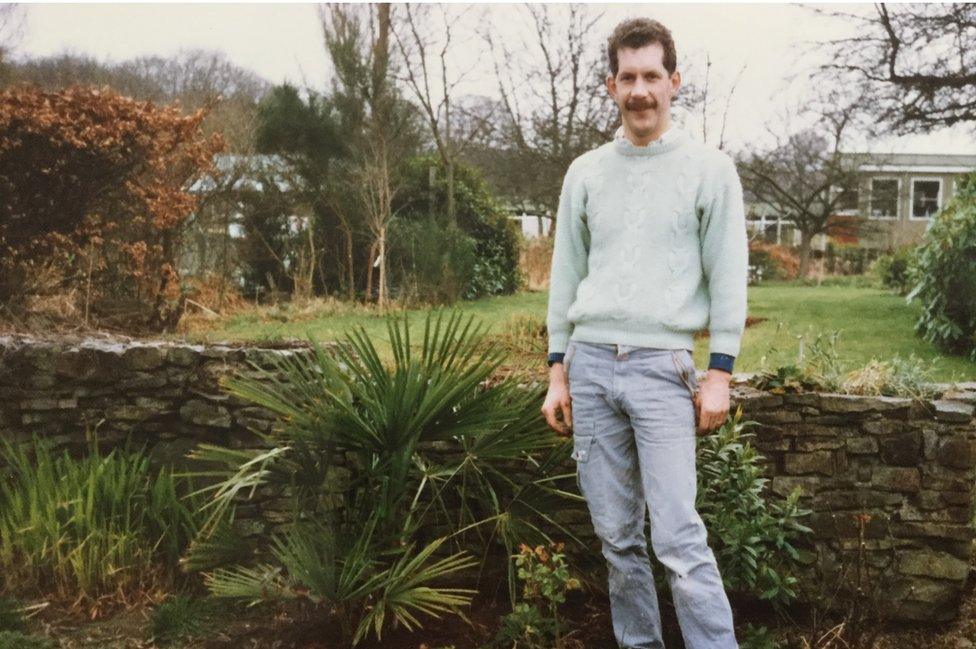
Mr Olpin standing next to one of the first trees he planted in 1988
Mr Olpin said his interest in plants and wildlife started when he was a child, but his love of the exotic came from a visit to the The Lost Gardens of Heligan in Cornwall and from books on the subject.
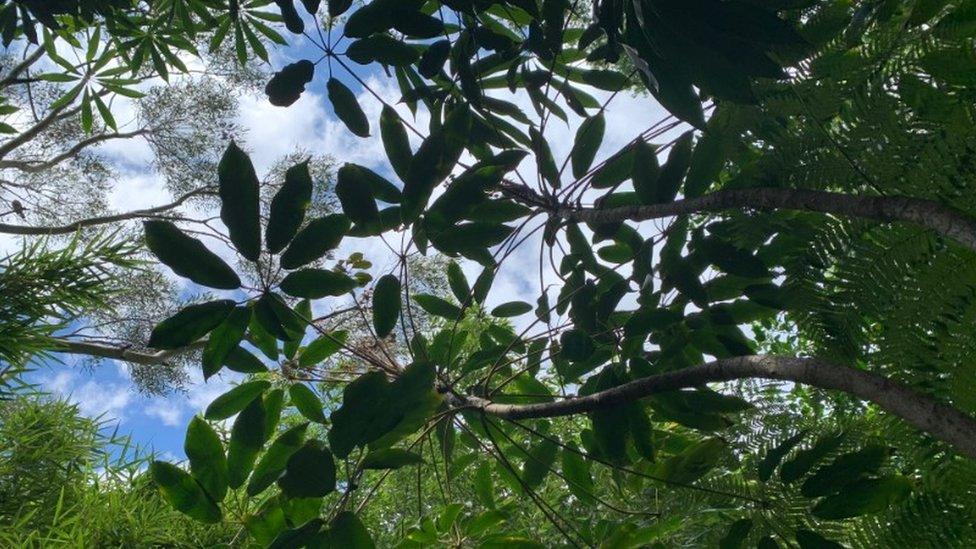
The garden, which is about 200ft long, features a variety of exotic trees and plants
Due to a fear of flying, Mr Olpin said he has not been lucky enough to see the plants in their native habitats.
The only time he has ever flown was on a trip to Marseille in France, but he was so scared he made the return journey by train, he said.
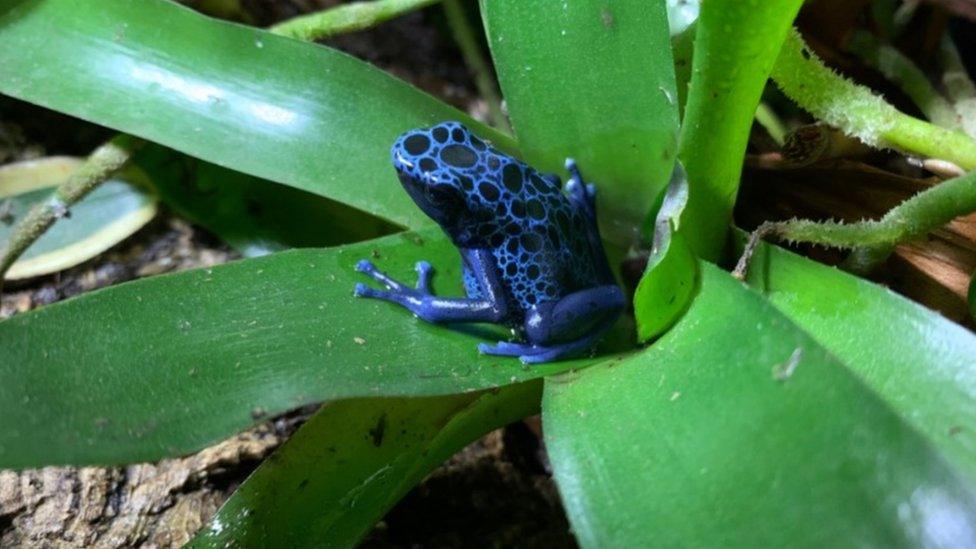
Mr Olpin has also started breeding poison dart frogs, which he keeps in tanks in his conservatory
However, his love of the exotic continues to flourish and he has now started breeding poison dart frogs.
"They are not poisonous in captivity," he said.
"They get their poison from micro-toxins in the insects they eat in their native countries."
Mr Olpin, who is a biochemist, added that he was hoping to retire soon and was looking forward to enjoying his garden, but perhaps doing a little less work on it.

Follow BBC Yorkshire on Facebook, external, Twitter, external and Instagram, external. Send your story ideas to yorkslincs.news@bbc.co.uk, external.
- Published1 February 2021
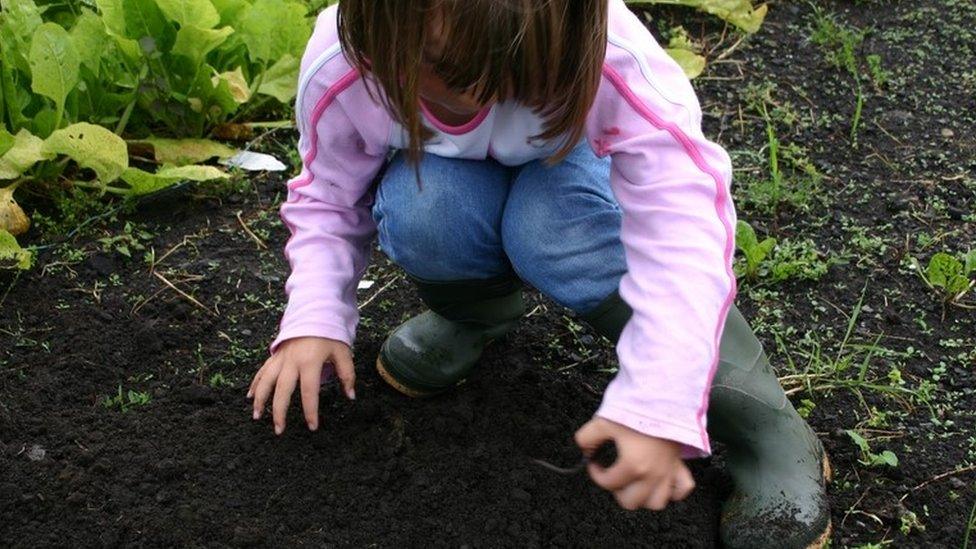
- Published28 January 2021

- Published7 October 2020
